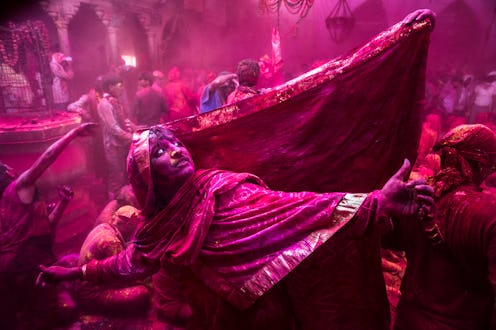News
India Rules Gay Sex Illegal
On Wednesday, the Supreme Court of India issued a ruling reinstating the country's ban on homosexual sex. A lower court had decriminalized the practice four years ago, overturning a colonial law known as Section 377, which banned "carnal acts against the order of nature." Though the court found that the law didn't violate the Indian constitution, it said that parliament is free to legislate it away if it chooses to do so. Same-sex sexual contact is punishable by up to ten years in prison under the law.
"It is hard not to feel let down by this judgment, which has taken India back several years in its commitment to protect basic rights," said the Naz Foundation, which advocated for the decriminalization of homosexuality. Naz called the Supreme Court decision "a black day of freedom in India."
It seemed like LGBT rights had been progressing in India, and gay pride parades have been taking place in the country since 1999, with larger events in big cities. A prince, Manvendra Singh Gohil, came out publicly in 2006. He has since become an advocate for LGBT issues and HIV/AIDS awareness. Plus, the country might soon legally recognize a third gender. To many, this ruling is a huge step backwards for India.
Others, meanwhile, rejoiced at the news. "The Supreme Court has honored the sentiments of Hindus, Muslims, Sikhs, Christians and those who believe in morality," said Baba Ramdev, a Hindu spiritual leader. "Today they are talking about men having sexual relationships with men, women with women; tomorrow they will talk of sexual relationships with animals."
Now, advocates say they worry about harassment and potential blackmail from law enforcement officials. It's not clear whether the parliament in the country, which has many conservative regions and is increasingly supporting a conservative nationalist party, will undertake a repeal of the code.
So why is there no public outcry about the state of LGBT rights in India? Why isn't there a "Dump Indian [product name here]" campaign? Perhaps most international LGBT activists simply didn't see this coming. Or, perhaps the crucial difference is that in India, there isn't a gag order imposed on the LGBT community, or on "gay propaganda." Gay people in India are still free to educate, and free to push for more civil rights openly. Of course, with this ruling, they are not really free. But there's at least a prospect for change.
